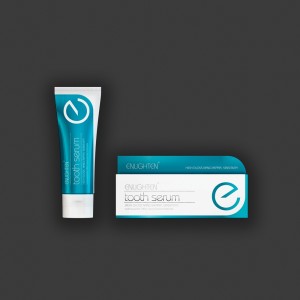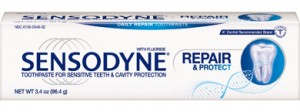Tooth sensitivity is one of the most common problems dental patients have. Tooth sensitivity can affect just one tooth or all teeth. Most people experience sensitivity when drinking hot, cold, sweet or sour, and that pain quickly spreads deep into nerve endings of your teeth.
Causes of Sensitivity
Tooth sensitivity arises when gums recede and expose the underlying dentin. Dentin is the soft layer of tooth located beneath tooth enamel. There are thousands of tiny tubes within the dentin leading to the tooth’s pulp and nerve center. These tubes allow sensations of hot and cold to reach the nerve, causing sudden pain. Sensitive teeth can be caused by a multitude of things including wear and tear due to brushing too hard, tooth decay, gingivitis leading to gum recession, chipped or broken teeth, teeth grinding, tooth whitening products, age, plaque buildup, and eating acidic foods. The big take away is that all of these factors listed expose dentin, which ultimately can cause tooth sensitivity.
Toothpaste Choice
Making the correct choice in toothpaste is paramount. Avoid any smokers/whitening toothpastes. These can often make the situation worse. Toothpastes containing Potassium Nitrate and Flouride is the secret ingredient which helps reduce or eliminate sensitivity in the majority of patients. Enlighten tooth serum and Sensodyne repair and protect tend to be the products of choice in combatting this problem.
If your teeth persist to be severely sensitive after several days your dentist can help solve the problem. Bonding can be applied to cover exposed root surfaces as well as varnishes. These methods will protect the dentin and prevent any irritants from causing any pain.
- Practice good oral hygiene, this can help prevent conditions such as gum disease, which can cause receding gums
- Use a toothpaste specially formulated – toothpastes containing potassium nitrate such as Sensodyne Repair and Protect and Enlighten tooth serum.
- Don’t brush too hard, electric toothbrushes have pressure indicators
- Use a soft toothbrush -preferably one designed especially for sensitive teeth
- Avoid acidic foods – that can wear away tooth enamel, such as wine, vinegar, soft drinks
- Avoid grinding your teeth – or clenching during the day. Ask you dentist about a mouthguard for night time use.
- See you dentist for regular check-ups – dental care recommendations and advice for your sensitive teeth



